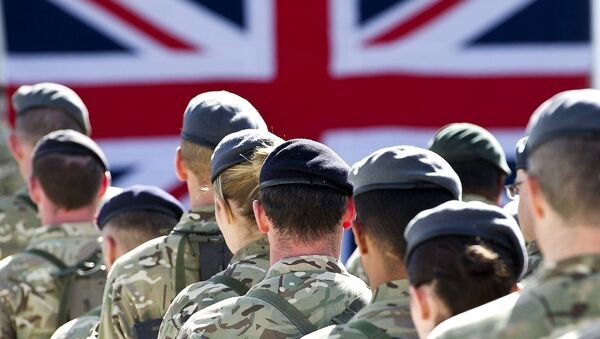Rethinking Security, a network of peace and security experts, has welcomed the UK government’s decision to pause the Integrated Security Review in light of the COVID-19 pandemic.
The review, which was due to be completed by July, had to be scaled back last month when the coronavirus hit Britain and on Tuesday, 15 April, it was announced that the Ministry of Defence had formally paused the review.
"A huge opportunity to do things differently." - our response to today's news that the Government has postponed the Integrated Security Review in light of COVID-19. https://t.co/ggm55e6XWN #government #security pic.twitter.com/FUH6JoThQd
— Rethinking Security (@RethinkingSecu1) April 15, 2020
But Rethinking Security’s Co-ordinator Richard Reeve said: "While the delay is the right thing to do in light of the current crisis, it is also a huge opportunity to do things differently."
Mr Reeve, who is the Chief Executive of the Oxford Research Group, said: "The current situation highlights that health and economic security are crucial factors in any national security strategy. Threats from global pandemics, climate breakdown and inequality cannot be met with a military response. Nor can they be mitigated without broad international co-operation."
He urged the Ministry of Defence to introduce a period of public consultation before the review begins to give citizens a say on the security of their nation.
When Mr Johnson announced the review last year pandemics were not even mentioned and were not considered a realistic threat to Britain’s security.
Check out my latest article: Your guide to the Integrated Defence and Security Review... https://t.co/iMgHwxZUJV via @LinkedIn
— Duncan Fulton (@fulton_duncan) March 3, 2020
In his speech in December Mr Johnson said: "The review will extend from the armed forces to the intelligence services, counter-terrorism forces and serious organised crime. It will also consider Britain’s foreign policy, how we can best use our huge expenditure on international development, and the role of technology."
He added: "We must use money better, undertake a huge technological upgrade of all our security forces so they are ahead of hostile powers, terrorists and organised crime — and unlike previous exercises, we must develop an integrated plan for all forces engaged in security."
Among the items said to be on the agenda for the review was widening the scope of drones and unmanned submarines and possibly following the example of the United States, which set up its own Space Force in December with a Star Trek-style logo.
The Integrated Security Review is here.
— Sir Humphrey (@pinstripedline) February 26, 2020
This helpful bingo card should assist in you tracking all the most likely articles, letters, interviews and speeches that will appear in the media over the next few months. pic.twitter.com/gp5CfgXJ7v
Last month former British national security adviser Peter Ricketts urged the government to delay the review until the coronavirus crisis is over so it could be done properly.
He told the Defence Select Committee: “I do not see how a deep, thorough and integrated review covering the entire spectrum can now be done by July.”
The committee’s chairman, Tobias Elwood, said they were “not impressed” by the haste with which the review was being carried out with the British Army only given until 20 March to submit its full requirements and without having seen the Foreign Office’s policy documents on its view of Britain’s role in the world.
In February the National Audit Office reported the Ministry of Defence could have a shortfall in funding of £13 billion over the next 10 years and that figure was before the UK government splashed out huge sums of money on welfare support, the NHS and the Jobs Retention Scheme when the coronavirus crisis began to bite.
A huge chunk of the Ministry of Defence’s budget is taken up by the renewal of the Royal Navy’s nuclear missile submarine fleet.
The UK government says the renewal of the Trident nuclear missile system will cost £31 billion but the Campaign For Nuclear Disarmament claims it will ultimately cost £205 billion.




